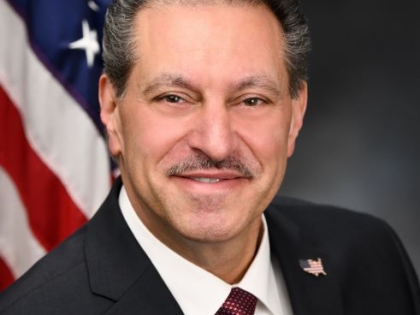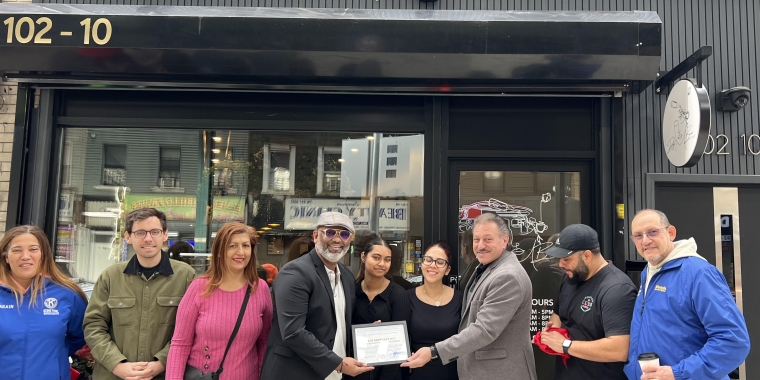
Addabbo: We’ve Got to Get Back to Work in Albany
Joseph P. Addabbo Jr
August 16, 2011
-
ISSUE:
- Ethics
- Government Operations
- Budget
Queens, NY, August 16, 2011 – NYS Senator Joseph P. Addabbo, Jr. (D-Queens), reports to his constituents that while the legislative session that ended in June was very successful, there is still work left to be done should the Senate get called back to Albany into session this fall. The Senator feels the state legislature needs to deal with a few important issues: an update on the budget that was passed on time in April; the unfinished business of redistricting and of ensuring the state’s compliance with federal law by reconciling the governor’s and the Senate’s health care exchange proposals to pass a health care plan into law.
Pertaining to the State Budget, on August 2, the NYS Division of the Budget (DOB) released its State Fiscal Year (SFY) 2011-12 Financial Plan First Quarter Update. Since the release of the Enacted Budget Report on May 6, the DOB has not made any fundamental revisions or changes to the State’s Financial Plan. The DOB projects that the current state budget will remain balanced for the duration of the State Fiscal Year and projects the General Fund will close out the current year with cash balance of $1.737 billion, which is the same level as projected in its Enacted Budget Report. For the first quarter, revenue collections for the state are running higher by $809 million than projected on May 2. Through June, General Fund Personal Income Tax receipts are above projections by $489 million. Also, business tax collections are $232 million higher than projected through June. State sales tax collections were slightly above target through the first quarter. The DOB expects aggregate collections to weaken during the remainder of the year. As for state spending, through June, State General Fund spending is lower than originally projected on May 2. The vast majority of this difference was caused by timing delays, processing issues and a reclassification of lottery aid payments. Through the first three months of the fiscal year, state spending was $1.194 billion below cash financial plan targets set in May. On an All Funds basis, actual spending totaled $31.751 billion, which was $1.767 billion below target.
While acknowledging the U.S. economy is still recovering slowly from recession, Addabbo contends that the DOB might have underestimated revenue projections in the current state fiscal year. Employment and income growth in the NYC region, as well as the commercial real estate market, could be showing signs of recovery. Tourism in NYC remains strong and the Senator still expects that State revenue collections will be higher than the DOB’s projections for the fiscal year. Addabbo noted, “The State Legislature should ensure the balanced stability for the remainder of this year’s State Budget, while also preparing to meet our fiscal obligations for next year.”
On the topic of redistricting, Addabbo, who previously signed a pledge to reform the redistricting process, believes that the practice of politicians choosing their voters and district lines must come to an end. As the redistricting process has begun with hearings across the state, State Legislators are apparently in agreement to implement a sensible law that counts prisoners in their home districts instead of in counties where they’re imprisoned.
Addabbo contends that while redistricting is the state’s top immediate 2012 issue, it should be dealt with by the end of this year. It involves the drawing of election district lines based on new U.S. Census data for both the State Legislature and New York’s congressional delegation. The task must be completed in time for the 2012 elections, which means finishing the lines by next spring so that the ballot process can get underway. According to the Senator, the importance of a fair and transparent redistricting process cannot be underestimated. The voice of the voters, fair and equal representation and governmental negotiation of next year’s legislative session are all affected by the process. Traditionally, good-government and watchdog groups routinely criticized the previous redistricting processes, saying it created gerrymandered and unfair districts. Governor Andrew Cuomo introduced a bill to give the task to an independent commission, which won the applause of good-government groups and some State legislators.
State lawmakers have launched a series of statewide hearings on redistricting to develop their own plan; the third installment was held in Albany last week. The New York City hearing date is Wednesday, September 21 at 10 AM. The hearing will take place at 250 Broadway in downtown Manhattan. Governor Cuomo vowed to veto any plan in which district sizes vary more than 1 percent from the mean – 305,000 residents for Senate districts and 126,500 for Assembly. Currently, districts can vary in population by plus or minus 5 percent. That means some Senate districts have up to 318,484 residents and some as few as 290,925. Critics say the leeway allows lawmakers to protect incumbents during election years. “Independent redistricting is necessary for the process to become more transparent and equitable and for our government to become more representative and responsive to our people. We must get back to Albany and deal with this important issue,” Addabbo urged on the issue.
Addabbo also contends that the State needs to come into compliance with federal law by passing health care exchange legislation. If this is not done soon, the State is at risk of losing out on tens of millions of dollars in funding from Washington. The federal Patient Protection and Affordable Care Act (ACA) requires that all states have a health benefit exchange—where individuals and small businesses can compare and purchase health insurance coverage and determine eligibility for public health insurance or subsidized insurance—operational by January 1, 2014.
Substantial federal funds to assist in establishing these Exchanges are available in two levels. Level One Establishment grants are only for one year and are for states that have made “some progress” in implementation using their planning grants. Level Two Establishment grants are multi-year grants for those states that have established their exchanges, including their governance structure, budget, and initial plans for key components of implementation. These grants will be given out on a first-come, first-served basis, and it is important for New York to obtain a Level Two grant as early as possible to ensure that sufficient funds are available.
On June 8, the Senate Republican Majority introduced S.5652, creating the New York Health Benefit Exchange. The Governor then formally sent up his Executive bill (Program Bill #13). The Assembly has not made a draft of their position available. In general, the Senate and Executive bills differ over the scope of authority the Exchange will have with the Senate proposing that the Exchange be an information center where small groups and individuals may go to compare various insurance instruments. The Senate plan also prohibits the Exchange from imposing taxes or fees to support itself after federal funding ends in three years. Under the Senate plan, the Exchange is prohibited from regulating the insurance industry. Current regulation by the Departments of Financial Services (formerly the Banking and Insurance Departments) and Health would remain in place.
The Executive would require the Exchange to perform a study on the advantages of allowing the Exchange to decide which insurance products would be in the Exchange among those policies which meet the federal requirements. A study would also be performed to determine if the Exchange should be an active purchaser and have the power to evaluate, regulate, and exclude plans based on cost and other quality issues. The Exchange would not have the power to establish taxes or fees to support itself, but would study means to be self-sustaining when federal support ends. Addabbo stated that this issue has to be examined in light of the recent ruling by the 11th Circuit Court of Appeal, which held that the mandate of the federal health care bill was unconstitutional. Most political pundits believe this issue is headed to the Supreme Court in October.
“These important issues all will have a great and lasting impact back home in my district and for the entire State. I intend to continue to fight for independent, non-partisan redistricting, for affordable health care for our residents, and to ensure we have a State Budget that addresses the needs of our people,” concluded Addabbo.
# # #
Share this Article or Press Release
Newsroom
Go to Newsroom


